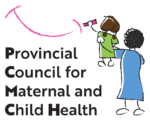
Issue 5 | December 2023
Moving from the paediatric to the adult care system can be a difficult transition for many patients and families. This can involve loss of familiar settings, healthcare providers and routines. Without proper attention and support, transitions can lead to deterioration of the youth’s health status, and avoidable hospital admissions and emergency department visits.
Two sets of resources released in 2021 aim to support patients, families and caregivers, healthcare providers, and healthcare organizations in enabling a seamless and smooth experience when transitioning from paediatric to adult care. Both emphasize that youth, their families, paediatric healthcare providers and adult healthcare providers all have an important role to play in the shared responsibility of patient care prior to and following the transfer of care.
Transitions Quality Standard
The Transitions From Youth to Adult Health Care Services Quality Standard, developed by Ontario Health in partnership with PCMCH, can help patients, families and caregivers know what to ask for in their care; help healthcare professionals know what care they should be offering based on evidence and expert consensus; and help healthcare organizations measure, assess and improve their performance in caring for patients. The Quality Standard includes six quality statements that address areas that improve transitions to adult care, including: early identification and transition readiness, information-sharing and support, the transition plan, coordinated transitions, introduction to adult services, and transfer completion. The Quality Standard is available here. There are also specific guides for young people and caregivers.
Transitions Toolkit for Complex Care
The Complex Care for Kids Ontario (CCKO) Youth Transition to Adult Care Toolkit helps streamline the process for children and youth with medical complexity transitioning from the CCKO Program to Ontario’s adult care system. Healthcare providers, families/caregivers and youth are provided guidance through age-based checklists and a Transition Resource Guide that highlight services and funding supports available for this unique paediatric population at different life and treatment stages, from age 12 to 18. The checklists’ age-based tasks aim to ensure a collaborative approach between the youth, their family/caregivers, and their current and future adult care providers. While the CCKO Toolkit is meant specifically for youth with medical complexity, it can be adapted to meet the needs of other patient populations during the time of transition. Visit the CCKO Youth Transition to Adult Care Toolkit page for more information and resources.
